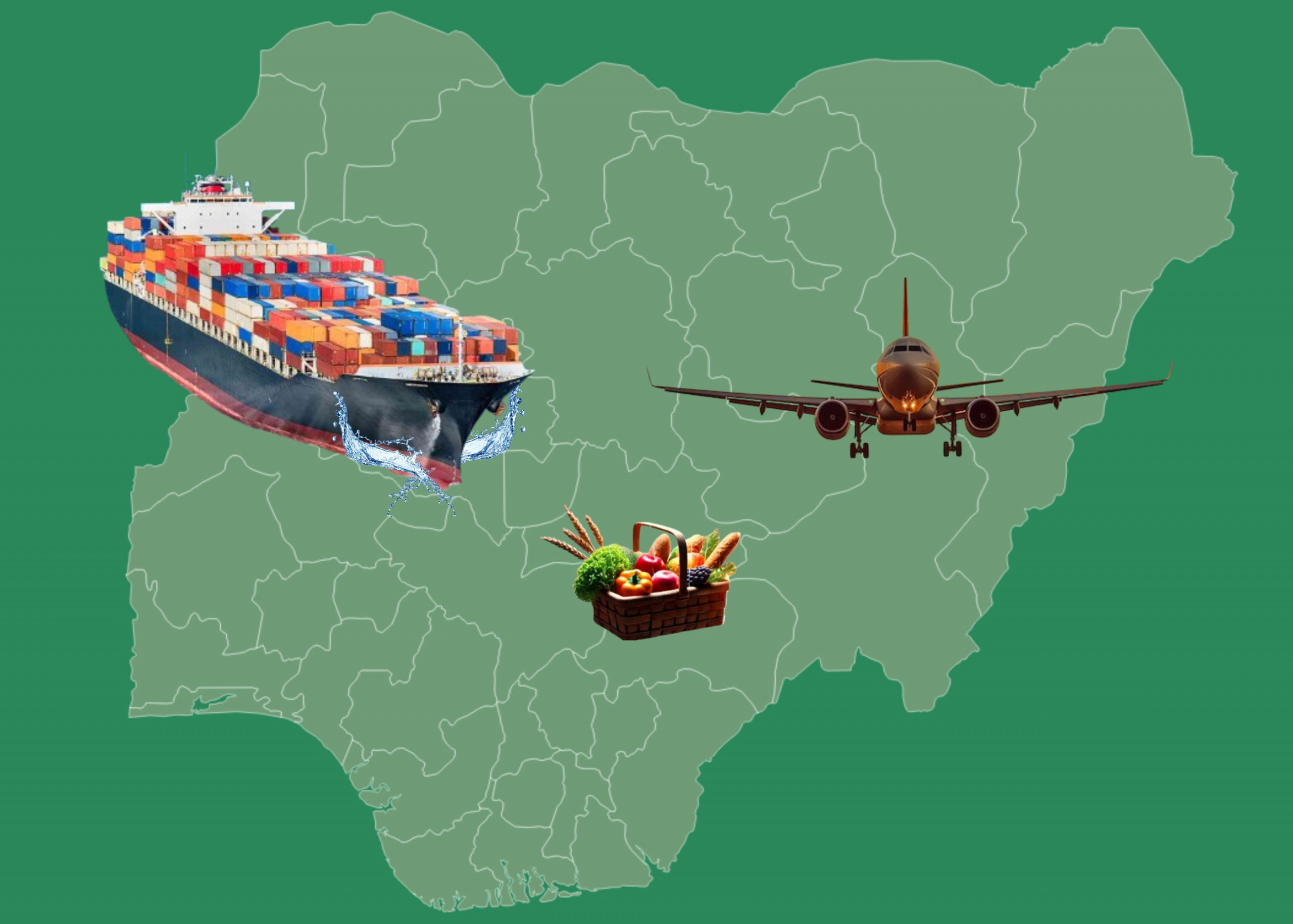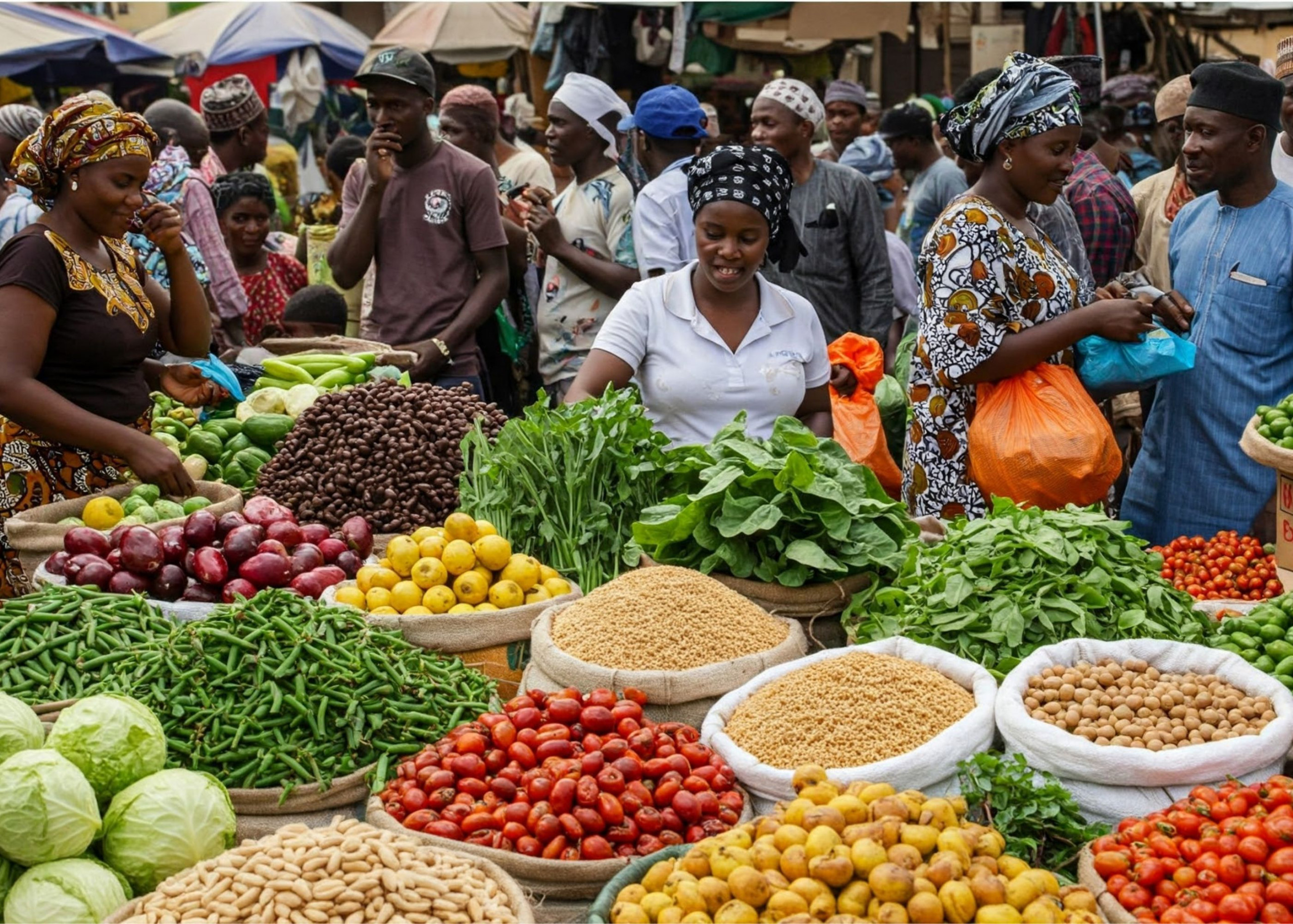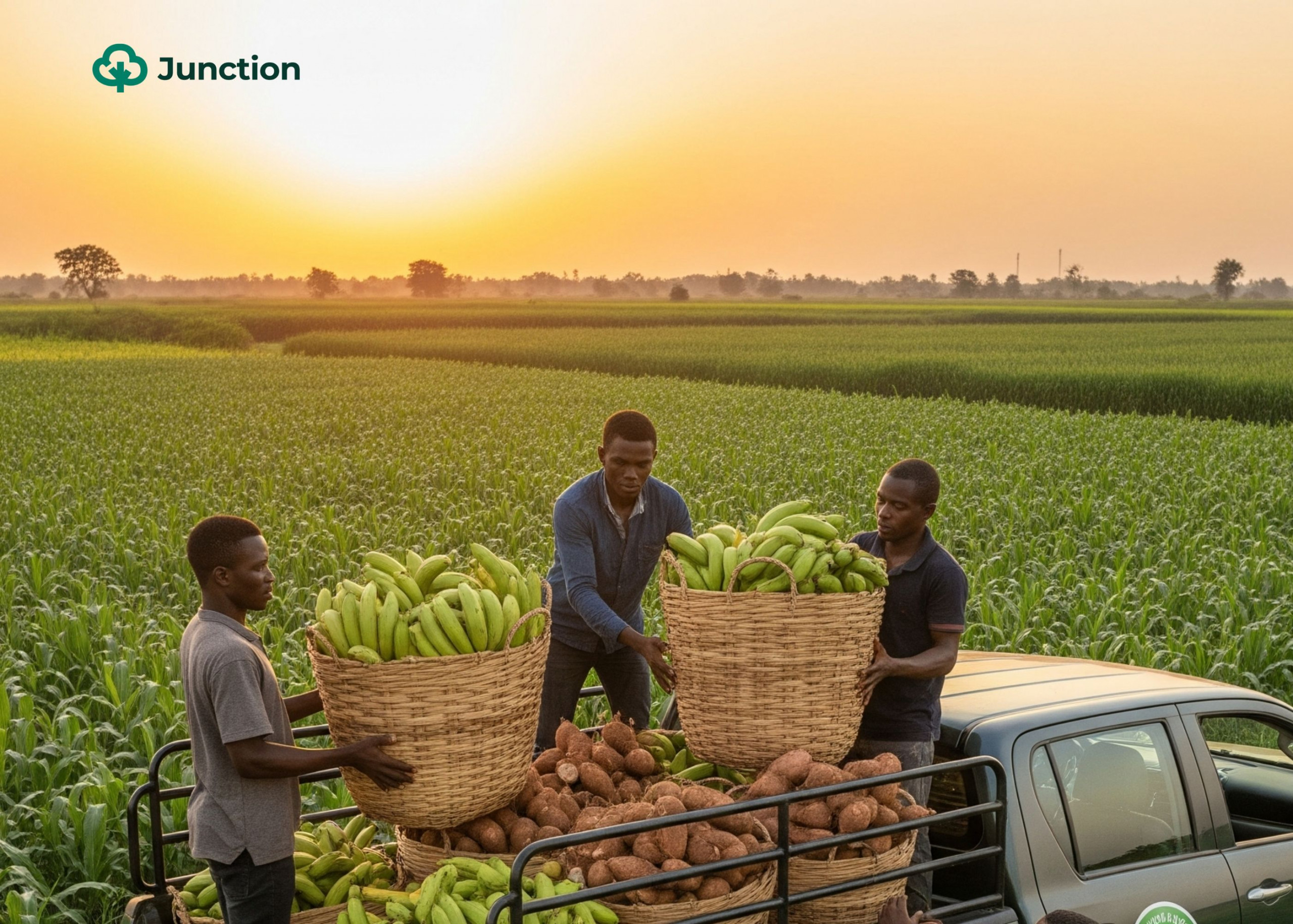On July 10 2024, amidst mounting protests over the rising cost of living, Nigeria’s Minister of Agriculture and Food Security, Senator Abubakar Kyari, went on X (formerly Twitter) to unveil a sweeping plan aimed at reducing food prices within 180 days.
The announcement detailed a range of measures, including a 150-day duty-free import window for essential food commodities, the importation of 250,000 metric tons each of wheat and maize, accelerated agricultural production, and efforts to restock the National Strategic Food Reserve.
While the measures seemed comprehensive on paper, the public response was largely sceptical. Many Nigerians, citing the APC administration’s perceived inability to address past economic challenges, doubted the feasibility of such an ambitious plan. Could this strategy, launched in the shadow of food inflation and widespread hunger, truly deliver on its promises?
Now, over 180 days later, it’s time to revisit this bold declaration. In this article, we critically examine the implementation of these measures and assess whether the minister’s promise to crash food prices has translated into real relief for Nigerian households—or if it has remained yet another unfulfilled political commitment.
The minister’s plan: a closer look
When Sen. Abubakar Kyari announced his 180-day roadmap to crash food prices, he laid out an ambitious plan that touched on several key areas of intervention. These measures were designed to address immediate supply constraints while setting the stage for long-term agricultural reform. Here’s a breakdown of the promises:
- Duty-Free Import Window: At the heart of the minister’s strategy was a 150-day suspension of duties, tariffs, and taxes on select food commodities, including maize, husked brown rice, wheat, and cowpeas. This measure aimed to reduce the cost of importing essential goods, making them more affordable for consumers. To control market pricing, the government introduced a Recommended Retail Price (RRP) framework and assured Nigerians of stringent quality standards for all imported commodities.
- Strategic Food Imports: To supplement local production, the federal government committed to importing 250,000 metric tons of wheat and 250,000 metric tons of maize. These semi-processed commodities were to be distributed to small-scale processors and millers, ensuring the supply chain could meet demand while stabilising prices
- Boosting Local Production: The roadmap also emphasised strengthening domestic agricultural output. Key initiatives included:
- Continued support for smallholder farmers during the wet season.
- Nationwide expansion of dry season farming.
- Aggressive mechanisation efforts to reduce production costs and increase productivity.
- Rehabilitation of irrigation facilities and increased land cultivation in collaboration with sub-national entities.
- Stakeholder Engagement and Collaboration: The minister highlighted a series of collaborations with stakeholders, including military establishments, to cultivate arable lands. There were also efforts to promote greenhouse cultivation of crops like tomatoes and peppers, addressing seasonal shortages and stabilising prices.
- Nutrition and Livestock Development: The plan included scaling up fortified food production and supporting home gardens to enhance nutrition security. Additionally, a Renewed Hope National Livestock Transformation Implementation Committee was inaugurated to drive livestock development policies.
The measures were ambitious, aiming to tackle both immediate and systemic issues in Nigeria’s food system. However, translating these plans into tangible results would depend heavily on timely implementation and the cooperation of all stakeholders involved.
The reality: food prices in the last 180 days
Six months later, the key question remains: did these measures achieve the intended goal of reducing food prices? To answer this, we examine the price trends of major commodities during the 180-day period.
The ambitious promises of Sen. Abubakar Kyari’s roadmap stood in stark contrast to the lived experiences of millions of Nigerians. Despite assurances, the measures failed to deliver tangible relief to households struggling under the weight of food inflation.
The duty-free import promise: a missed opportunity
The federal government’s approval of a 150-day duty-free window for essential food imports initially offered a glimmer of hope to alleviate the soaring cost of living. However, 180 days later, implementation had yet to commence.
Delays in policy execution, compounded by bureaucratic inefficiencies, meant that the intended benefits never materialised within the promised timeframe. Confusion over directives, inter-agency conflicts, and unclear policy communication left importers and consumers in limbo.
This inaction occurred against the backdrop of an inflation crisis, with Nigeria’s inflation rate reaching 32.7% in September 2024, while food inflation surged to 37.8%. The promise of reduced duties failed to translate into price relief for essential commodities like rice, maize, and wheat. Instead, prices either stagnated or rose, worsening the economic plight of millions of Nigerians.
The delays also highlighted the government’s struggles with inter-agency coordination. Customs officials reportedly did not receive clear directives from the Ministry of Finance until August—nearly two months after the announcement. Even then, disagreements among agencies like the Nigerian Customs Service and the Federal Inland Revenue Service further stalled implementation, eroding public trust in the government’s ability to act decisively.
The impacts of this inaction were severe. Hunger and food insecurity deepened, with many households unable to afford staples that had doubled or tripled in price. Small businesses, grappling with escalating operational costs, teetered on the brink of collapse. Meanwhile, local and global pressures, including rising energy costs, severe flooding in key agrarian regions, and volatile exchange rates, exacerbated the situation, leaving Nigerians to navigate an increasingly hostile economic landscape.
By the end of October 2024, 688,793 MT of wheat were imported, distributed across seven vessels that berthed at major seaports, including Apapa, Tincan, Calabar, and Rivers. This influx was expected to ease food prices and inflation.
It remains unclear if these shipments were part of the Federal Government’s 150-day duty-free import window announced in July 2024, as efforts to confirm the government’s involvement were unsuccessful. According to The Punch, inquiries to the federal ministries of agriculture and finance, as well as the Nigerian Customs Service, went unanswered.
The untapped potential of short-term interventions
Despite the shortcomings in implementation, the outlined measures held significant short-term potential. For instance, the timely execution of the duty-free import window could have provided immediate relief by stabilising prices for essential commodities.
Expanding dry season farming initiatives and rehabilitating irrigation facilities, even in select regions, could have boosted domestic production and alleviated supply constraints. Moreover, strategic partnerships with smallholder farmers and private sector stakeholders might have spurred localised solutions to food shortages, fostering a sense of shared responsibility in addressing the crisis. While these efforts would not have resolved Nigeria’s deep-rooted agricultural challenges, they could have offered a crucial lifeline to households grappling with the soaring cost of living.
Conclusion
Six months after the grandiose announcement, the promise of food price relief remains a distant mirage for most Nigerians. The sweeping measures outlined by the Minister of Agriculture and Food Security—duty-free import windows, increased imports, and accelerated production—have largely faltered in execution. Bureaucratic delays, lack of transparency, and gaps in implementation derailed what was supposed to be a short-term intervention, leaving many households to weather the unrelenting storm of food inflation.
The scepticism that greeted the July announcement now seems justified. Instead of delivering the swift relief that was promised, the initiatives have underscored the deep structural issues plaguing Nigeria’s agricultural and food systems. In stalling, the government not only failed to provide the much-needed short-term cushion but also deepened public disillusionment in its ability to address long-standing economic challenges.
As Nigeria grapples with the intertwined crises of food insecurity and inflation, one thing is clear: lofty promises will no longer suffice. Real change demands bold, decisive action grounded in accountability, strategic planning, and a genuine commitment to improving the lives of Nigerians. Anything less risks perpetuating the cycle of unfulfilled promises and growing public distrust.
The government’s bold declaration may have sparked fleeting hope, but without meaningful outcomes, it remains another hollow pledge—a sobering reminder that in the fight against hunger and economic hardship, action, not rhetoric, is the true measure of progress.



